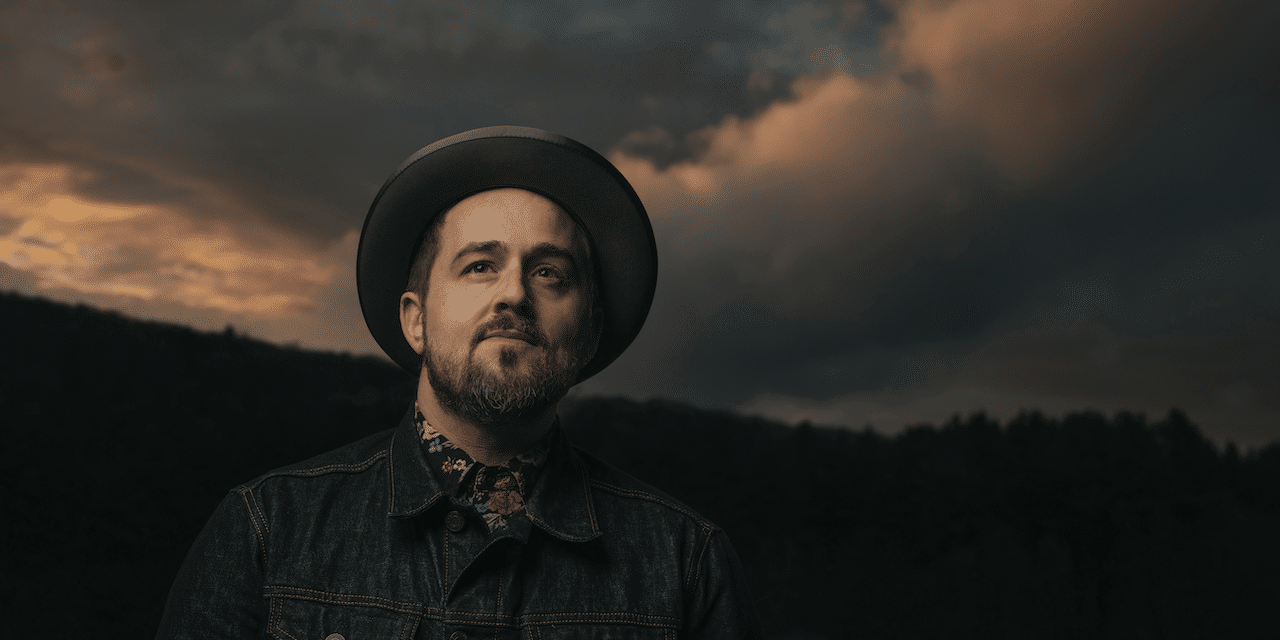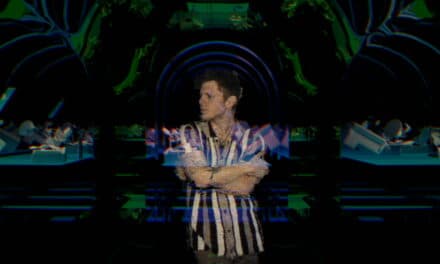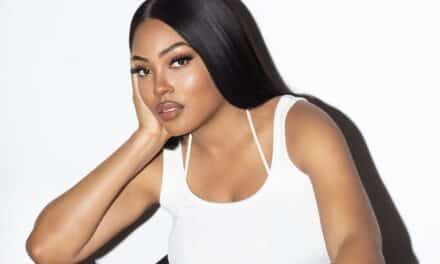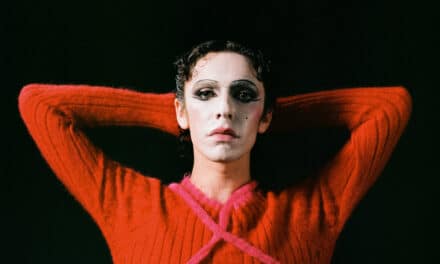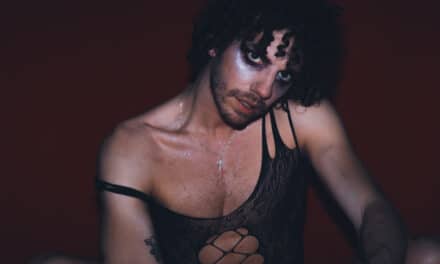Seth Glier’s new album The Coronation is an invitation to forge a new, more beautiful world out of the current chaos. “For most of my adult life, I’ve held the belief that humanity is right around the corner from something transformative,” Seth explains. “If we could only see that our separateness is an illusion, then a future of global cooperation and interdependence would be undeniable. As the coronavirus locked down the world, I watched this long-held belief inside of me becoming a reality right before my eyes.
The dolphins returned to the Venice canals, and millions of children saw the stars for the first time. I wanted this album to feel like a roadmap towards reunion in a reconnected and repairing world.”
Glier’s sixth album on MPress Records, The Coronation is a beautiful and powerful collection that explores an expansive range of musical styles and topics from the personal to the political. A Grammy®-nominated singer-songwriter, producer, and multi-instrumentalist from Western Massachusetts, Glier has also won five Independent Music Awards.
NPR describes his voice as “otherworldly” while praising him as “an engaging performer and storyteller.” His critically acclaimed, emotionally dense catalog of work often draws upon traditional roots music, experimental instrumentation, and moody atmospheres that result in soulfully intelligent stories that can alternately fight the power and break your heart.
Tell us about the genesis of your project. How did you get to where you are now?
I wrote my first song in 7th grade on September 11th. It was the first time I remember the adults in my life not having any answers for what was going on. Since then songwriting has been a place that I go to try and develop a language for a feeling I can’t name yet. It’s been a great companion and compass. My older brother was born with Autism and also had a lot to do with who I am and how I live in the world. I often refer to him as my greatest non musical musical influence. Learning how to communicate with him without words changed so much about my life and my songwriting.
I went to Berklee college of music for a year and dropped out to hit the road. I booked myself and played a ton of gigs for 5 years with my best friend Ryan Hommel. Along the way we got crazy lucky and got a grammy nomination for an album that I recorded in my parents basement. Wild stuff. I got many many speeding tickets along the way too. Got married a few years ago to someone way smarter than me. We moved into out home a few months before the lockdown began and I started fixing up the old home while recording the album that would become “the Coronation”
The Coronation is my 6th album on MPress Records who I am so lucky to have as a supportive label.
How would you describe the highs and lows of being an artist?
I don’t know if I even look at it as highs and lows anymore. I don’t think I really have a lot of control over what is going to be successful (high) or a flop (low). That’s not to say that there aren’t obstacles but usually I’ve even found an obstacle to a great thing to be inspired by. I think ultimately you have to enjoy watching yourself bleed a bit. Thats useful but its neither a high or a low.
What’s a musical guilty pleasure of yours?
Boy bands.
What are some sources of inspiration for you?
Right now I’m getting pretty deep into Cuban music and specifically Cuban vocal groups like Los Zafiros.
Who is an artist that you look up to more than others?
Frida Kahlo
Favorite activity to blow off some steam?
Fishing, I don’t know how much steam I’m blowing off but I love fishing.
Tell us about your latest release and how it came about?
I made a few songs before the pandemic but the majority of this album was cultivated in my time home. Stillness is not something I’m used to and something that I enjoyed very much while writing for the record. Before the lockdown I looked at my job as a songwriter akin to woody Guthrie and others in the folk tradition. I focused my songs towards documenting inequalities I saw in the world. During the pandemic that job expanded to not just write about our problems, but my songs needed to imagine a future. I needed to focus on trying to show the world we’re trying to build.
What are some things you do to deal with anxiety and creative blocks?
I started practicing transcendental meditation about 6 years ago which has really helped with my overall anxiety. If I’m feeling stuck creatively I usually will just revert back to my morning pages for a week. It’s sort of like a reset for my antenna. I also find collaborating with another person to be a great thing to keep the blockages at bay.
What’s the future looking like for you?
I’m going to be touring a lot in support of this album. I’m also producing a few artists this fall. Both require such different parts of myself and I’m excited equally for them.
The future for me is trying to remain still as much as I can this year. I learned much about myself through the pandemic and I’m hoping to apply some of those lessons to this year.
What inspires your visuals, videos, looks etc?
Usually the song inspires it. There is a song on the new record that was inspired by my relationship with water. When it came to a video together for it I knew water was going to be the star. I ended up collaborating with a free diver, gabriel forestieri, on the video and it’s pretty magical.
I go to art museums as frequently as possible to keep my visual eye open for new ideas but it’s always the song that informs me of what the visual should be.
What is the most embarrassing memory and most proud moment of your career so far ?
I played a gig in Cleveland on Halloween and dressed as Snooki from the jersey shore. My skirt kept riding up and at one point my boobs feel out on the piano. I haven’t seen the folks who were in the front row ever since.
Proudest Moments for me have all been as part of the American Music Aboard program. For the past few years I’ve been a cultural ambassador and have gone on several tours sponsored by the state department. The program was originally started with Louie Armstrong. Turns out when musicians (especially jazz musicians) start talking about how they put together a piece of music very quickly you start talking about democracy. Music truly is an universal language and the fastest way to create a bridge with someone different than you. Music binds, heals, and expands us all at once.
What is the best advice you’ve ever gotten?
Get a therapist.
Where do you think the music and entertainment industry is headed after this past year?
I know a lot of really talented artists who have left this business to find more stable work. That breaks my heart.I know venue owners that decided “its just too hard” and shut the doors last year. I think its good that’s its taken a pandemic to have independent music venues in a coalition with each other. I think its good the money is finally starting to flow to undefended venues. This is going to be a long entry ramp back onto the highway and that money from the government didn’t account for limited capacity requirements while operating for what seems like longer than we thought.
I think Ani Difranco said it best when she said “there is a problem in our house when Katy Perry is headlining New Orleans Jazz and Heritage festival.” Now I’ve got nothing against Katy Perry but the problem is not only is she not jazz or heritage music but this is indicative of a much larger consumer behavior that has no problem paying $500 for a festival ticket but balks at a $10 cover to get into the bar and help pay the local band playing that evening.
That shift of consumer conscience is already happening on Patreon for myself and others and allowing a lot of artists to finally have a “living wage” with a reliable stream of income. I don’t want to get on a soapbox about how horrific spotify is and just say that the problem in the music industry is no different than the problems outside the music industry. We are dealing with monopolies of consumerism and it’s screwing over a lot of hard working people. Music must become more local.

